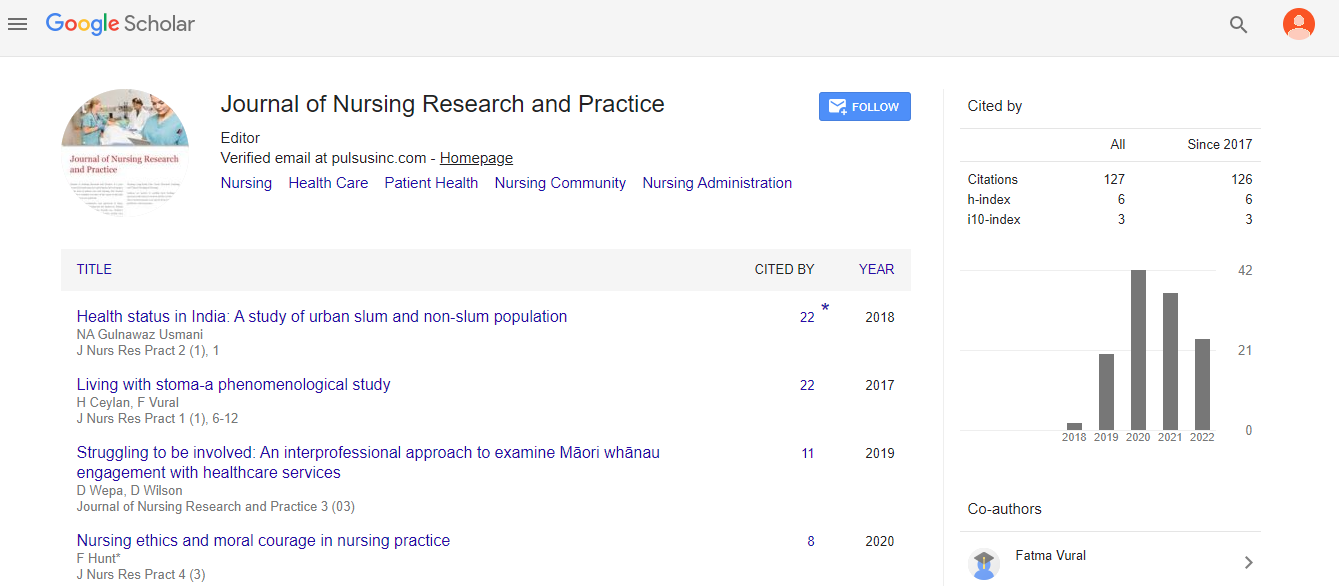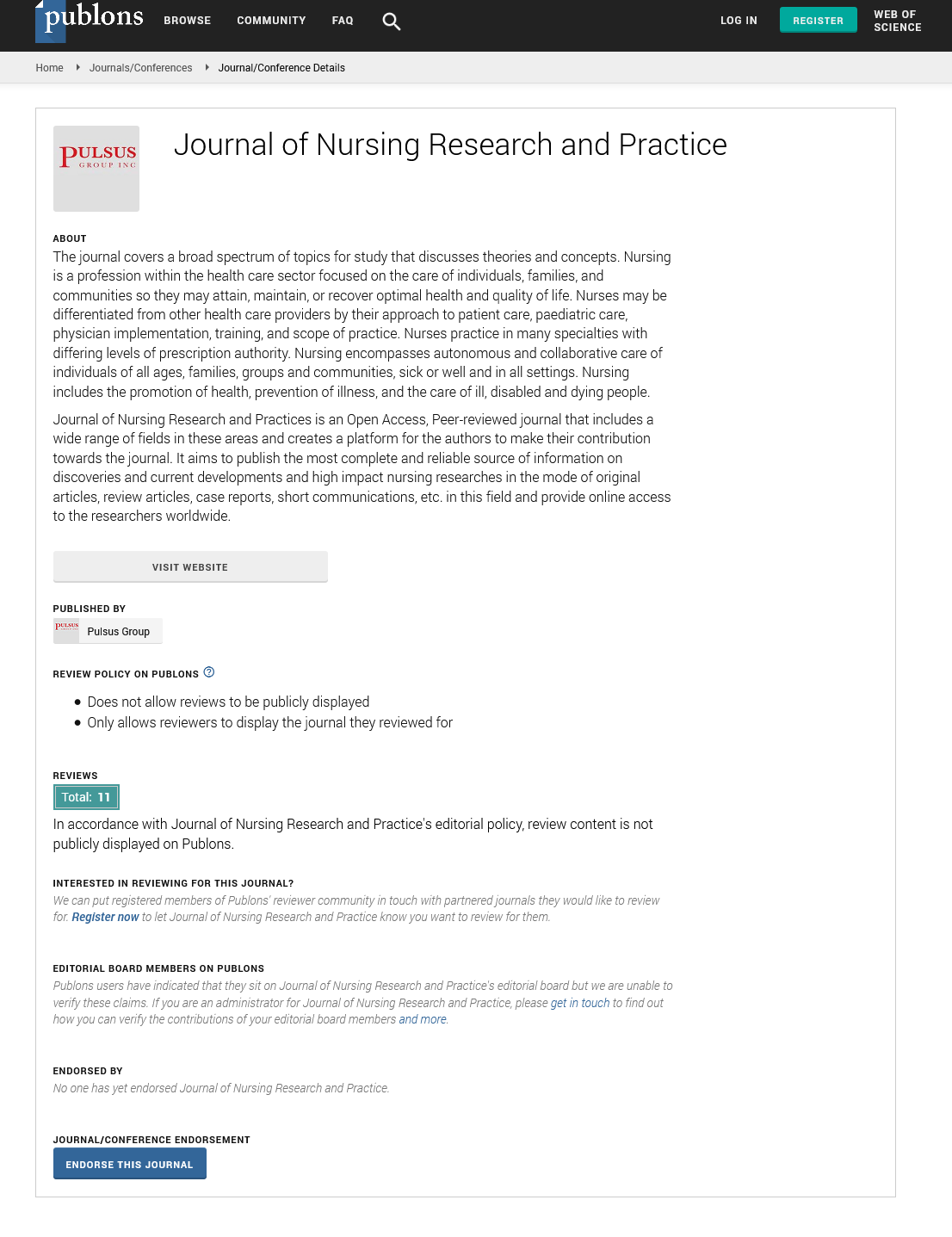
Sign up for email alert when new content gets added: Sign up
A prospective phase I comparison of toxicity and cosmesis outcomes of single-fraction IORT and hypofractionated radiotherapy with IORT boost in early-stage breast cancer
Joint Event on 45th World Congress on Nursing Care & 8th European Breast Congress
December 11-13, 2017 | Rome, Italy
Tanuja Bhandari
St. Joseph Hospital, USA
ScientificTracks Abstracts: J Nurs Res Pract
Abstract :
Radiation therapy is proven to reduce local recurrence in patients with early-stage breast cancer. To reduce toxicity, treatment time, and improve accuracy, intraoperative radiation therapy was used as definitive treatment or as a boost. The study's objective was to compare the short-term toxicity and cosmesis of single-fraction (SF) IORT and hypofractionated radiotherapy with IORT boost (HfB) given as definitive treatment. Between March 2011 and December 2013, 57 patients aged 45ΓΆΒ?Β?91years and 24 patients 43ΓΆΒ?Β?83years (total n=81) with Stage 0ΓΆΒ?Β?II were treated with SF or HfB (Mobetron, IntraOp Medical, Sunnyvale, CA). For SF treatment, 21Gy was delivered using 4.5ΓΆΒ?Β?6cm applicators with electron energies from 6to12 MeV. For HfB, an intraoperative boost of 10Gy was delivered using 4ΓΆΒ?Β?7cm applicators with energies from 4to12 MeV followed by whole-breast radiation with 40.5Gy over 15 fractions. Toxicity was assessed at 2weeks, 6months, and 12months per RTOG acute skin toxicity criteria and cosmesis. At 12months, SF and HfB were well tolerated by all patients with no Grade 3+ toxicity. At 1year, Grade-2 toxicity was resolved. 98% of SF patients and 90% of HfB patients had 0ΓΆΒ?Β?1 grade toxicity. In the SF and HfB groups, 100% of patients had excellent or good cosmesis at 12-month followup interval. The SF exhibited a more favorable cosmesis with a higher percentage of excellent scores compared with HfB (80.4% vs. 45%; p=0.0033). After breast conservation surgery, SF or HfB may be an option for patients with early-stage breast cancer compared to conventional external beam radiotherapy.
Biography :
Tanuja Bhandari, MD joined Valley Radiotherapy Associates in November 2007 and practices at St. Joseph Hospital in Orange, CA. She completed her medical degree at the American University in Coral Gables, Florida. She completed two years post-graduate training in Internal Medicine at the Greater Baltimore Medical Center, an affiliate hospital of Johns Hopkins University. She then completed residency in Radiation Oncology at Allegheny General Hospital-Drexel University Program which also serves as the National Surgical Adjuvant Breast and Bowel Project (NSABP) Headquarters in Pittsburgh, PA. She has special interest in radiation therapy for breast and gynecologic cancer and brachytherapy.





